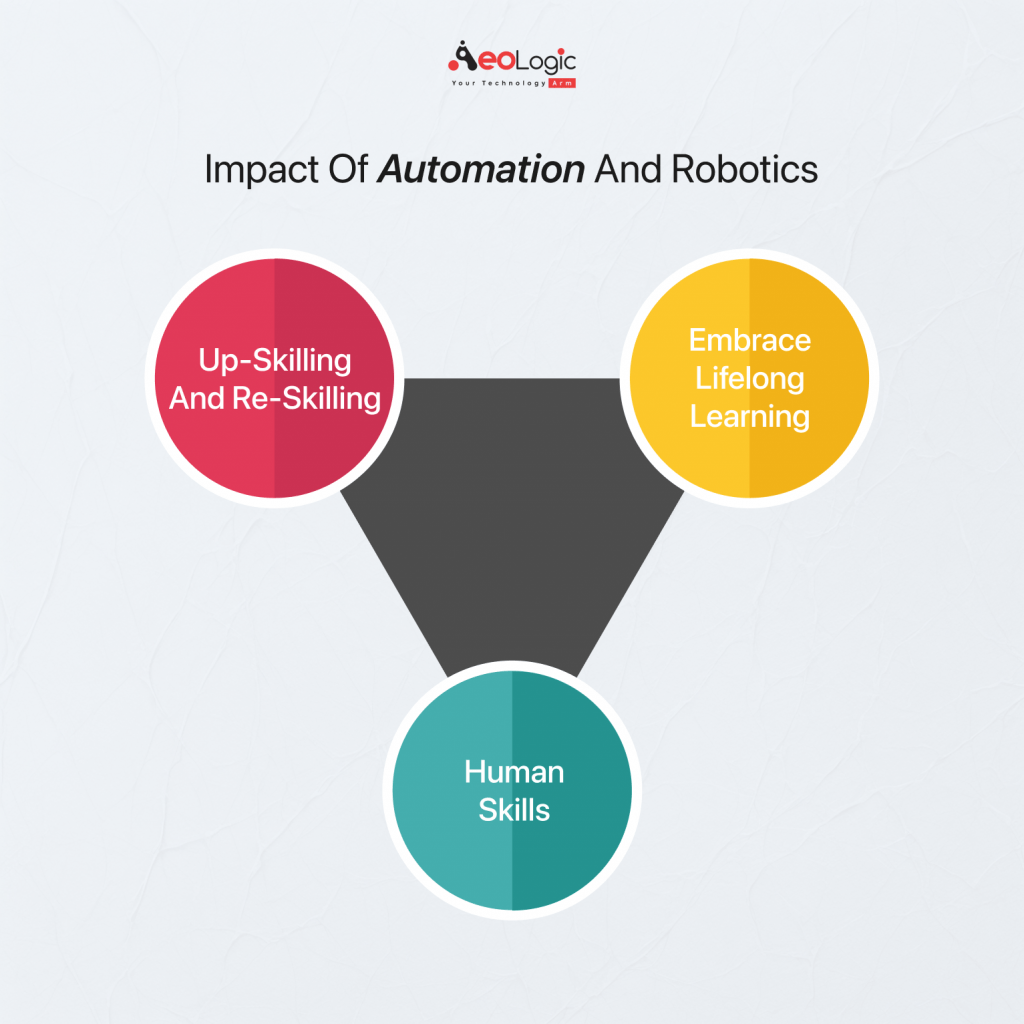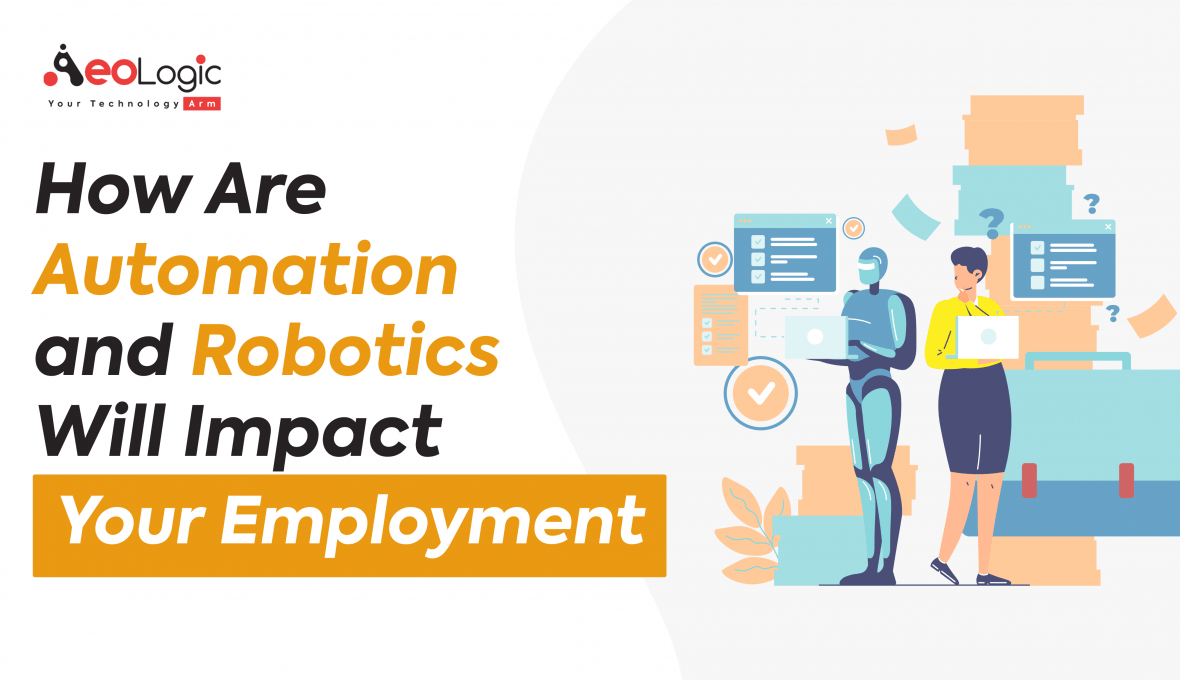Welcome to the dawn of a new era, where automation and robotics are reshaping the employment landscape. Never before has there been such a seismic shift in the way we work, and it’s time to delve into the impact of automation on employment.
The rapid advancements in technology are creating a dynamic, yet uncertain, future. What does this mean for your job? How will it evolve, or will it even exist a few years down the line? These questions are no longer hypothetical, but a reality we need to grapple with.
Our deep dive into The Impact of Automation and AI on Staff Augmentation Service promises to shed light on this transformative process. As we explore the potential upheaval in employment structures, we’ll uncover the true potential of automation and AI in the workspace. Stay tuned, because this is about to get fascinating.
The Impact of Automation on Employment
Automation, in simple terms, is the use of machines or technology to perform tasks that were once done by humans. It is becoming increasingly common in many sectors, including manufacturing, transportation, and even the service industry.
The Changing Job Market
According to a report by the World Economic Forum, about 85 million jobs are expected to be displaced by automation by 2025. However, at the same time, 97 million new roles could emerge that are more adapted to the new division of labor between humans, machines, and algorithms. This gives us an insight into the impact of automation on employment.
What this tells us is:
- Jobs won’t disappear; they will transform.
- Humans will need to adapt and learn new skills.
- Certain job sectors may experience a higher impact of automation on employment than others.
Will Your Job Be Affected?
Most of us think that only mundane, repetitive tasks can be automated. That’s not entirely correct. Yes, tasks that involve routine and predictability are more susceptible to automation. However, automation can also creep into jobs involving data collection, data processing, and even tasks requiring a certain degree of decision-making. So, it’s not a question of “if” but “when” and “how” the impact of automation on employment will affect you.
Also Read: How Robotics Technology is Changing the Logistics Industry
The Role of Robotics in the Workplace
Now, let’s talk about robotics. Robots are machines designed to execute one or more tasks automatically with speed and precision. There’s an increased prevalence of robotics in the workplace, especially in industries like manufacturing, healthcare, agriculture, and more.
Helping Hand or Replacement?
As much as the discussion on robotics in the workplace revolves around job displacement, we should also look at it from a different angle. Many robots are designed to work alongside humans in a cooperative work environment, known as ‘cobots’. They assist humans in doing tasks more efficiently and safely, which could lead to an increase in productivity.
For instance, in the medical field, robotics has led to better patient care, from performing accurate surgeries to patient rehabilitation.
Boost your business performance with our automation solutions!
Skill Demand Shift
Just like automation, integrating robotics in the workplace could lead to a shift in job roles rather than eliminating them. It opens up a vast space for technicians, engineers, operators, and data analysts who can operate and maintain these machines.
So, the question now is not “Will robots take over our jobs?” but “How can we work alongside robots?”
How Automation and Robotics Will Impact Your Employment: An Industry Perspective

From manufacturing to healthcare, from finance to education, automation and robotics are redefining the workplace landscape. Here’s a sector-wise breakdown:
Manufacturing: The Trailblazer in Robotics
Manufacturing has been a pioneer in implementing “robotics in the workplace.” Robots have automated assembly lines, improved product quality, and increased worker safety by performing hazardous tasks. Employees in this industry might need to evolve from manual roles to supervising and managing robotic operations. New jobs related to robot maintenance and programming are also likely to emerge.
Healthcare: A Blend of Empathy and Efficiency
The “impact of automation on employment” in healthcare is unique. Automation improves administrative efficiency and patient data management, while robotics assists in precision surgery and patient care. The focus for healthcare professionals will be on human-centric skills, such as empathy and communication, with technology handling routine tasks.
Also Read: The Role of Automation in Streamlining Banking Operations
Finance: Towards Smarter Decision Making
Automation is set to transform the finance sector, with AI-powered bots performing data analysis and risk assessment. Meanwhile, the “impact of robotics in the workplace” in finance is evident in automated kiosks and ATMs. Professionals in this industry may need to shift towards roles that require complex decision-making and relationship-building with clients.
Education: Enhancing Learning Experiences
Automation and robotics are revolutionizing education by personalizing learning experiences and automating administrative tasks. The role of educators will be more about facilitating and guiding learning rather than routine instruction.
Retail: Redefining Customer Experience
With automated checkouts and robot-assisted warehousing, the retail industry is another testament to the “impact of automation on employment.” Retail employees will need to hone their skills in providing exceptional customer service and experiences.
In each of these sectors, automation and robotics are not eliminating jobs but are reshaping them. The focus is shifting from routine tasks to roles that leverage human creativity, critical thinking, and emotional intelligence. As automation and robotics continue to advance, embracing change and lifelong learning will be key to navigating the future of work.
Also Read: Top Ways Robotics Are Making Life Safer
Preparing for the Impact of Automation and Robotics
If you’re still wondering about the impact of automation on employment and how robotics in the workplace will change your job, here are some tips to prepare for the shift:
- Up-Skilling and Re-Skilling: Adaptability is key in the future job market. Learning new skills, especially digital skills, could open new opportunities.
- Embrace Lifelong Learning: The pace of technological advancement means that we need to continually update our knowledge and skills.
- Human Skills: While machines and robots can perform many tasks, they can’t replicate human skills such as creativity, critical thinking, and emotional intelligence. These skills will always be in demand.
Final Words
The transition to a more automated and robotic workplace may seem daunting, but these changes also bring opportunities. By anticipating these changes and preparing for them, we can remain valuable contributors to the workforce, regardless of how much our work environments evolve.
So, embrace the impact of automation on employment and the rise of robotics in the workplace. After all, they’re here to stay.
Are you looking to implement robotics technology into your business? If yes so please feel free to contact us at support@aeologic.com






